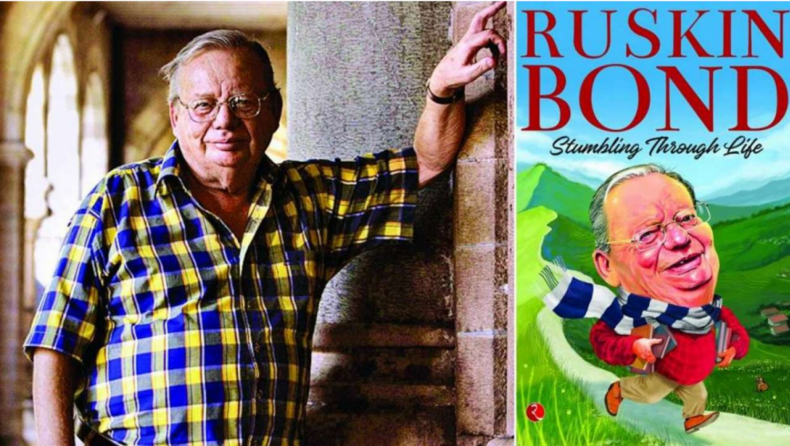Life isn’t about waiting for the storm to pass; it’s learning to dance in the rain…
The famous children’s writer Rusky aka Ruskin Bond turned eighty-eight yesterday. “I feel eighteen again- Ruskin Bond”. The writer shares all his experiences back in the days as he was born around independence. The writer has penned all the thought and emotion through his books and seems like yesterday we grew up and read his stories. eight is octadic, octagonal.
Ruskin Bond shares all his experiences of growing up in Shimla and being an Anglo-Indian the situations he saw changed as he is half British and around 1940 the situation in India was turning into a war. He says that in his growing up days he witnesses many things. As a boy of 10, he lost his father and later went to study at Bishop Cotton School a boarding school in Shimla.
He wrote his first book at the age of 21 and is one of the best books ever written. Ruskin Bond recently released new books- Looking For Rainbow, How to live your life, etc have been a piece of good news for readers and the writer himself is a bookworm he says for himself.

A peek in Ruskin Bond’s books
“I feel eighteen again- Ruskin Bond “. In an exclusive interview with Scroll, when he asked if people will get a glimpse of Ruskin Bond the poet in A Song of India. After a writing career of more than seven decades, which form would he say is closer to his heart – prose or poetry.
He said that he likes writing short essays, and memoirs. Being a fiction, he has written the most. This includes short stories, short novels, and poetry too. Well, verse really – in the sense that it’s not abstract like poetry. He has tried his hand at everything because he just enjoys putting words on paper. Wrote newspaper columns, written book reviews, and has written a fair amount of everything.
He likes sitting at his desk and writing about what’s happening outside the window. “I feel eighteen again- Ruskin Bond”. In a way, he records what he sees now and what he has seen over the years. All his writing comes from his own experiences and the people he met. I don’t think I would be very good at writing fantasies. I once tried writing crime fiction but everyone who read it said they figured out in the first chapter who the murderer was! So I gave up on that!
The next question asked was that he writes very fondly of animals, rivers, and nature in his books. Many authors recommend spending time amidst nature to be a better writer – do you recommend it too. He said that although it’s not a necessity at all. One can live in a city all their life and still write a great book. But it depends on his nature. He is the sort of person who responds to the natural world.
It conveys something to me- he says.
Nature is his religion and it has played a big role in his writing, so much over the years. He writes more about animals and trees in his recent books than he ever did. They are inseparable from his personal life too.
https://twitter.com/ZairaWasimmm/status/1351826318929739777?s=20&t=Ll4KdbA9z_R7KzczqyTBNA
Last up he was asked that Listen to Your Heart, readers get to see Ruskin Bond in his early days of publishing. You admit to being lonely in London yet you remember those who were kind to you. To sum up your writing career, would you say it’s a solitary pursuit or one buoyed by the generosity of those around you.
He said that In a way, writing is a solitary pursuit as it makes one write in aloofness. But writing is also about people and if they hadn’t made friends or known the people then one wouldn’t have anything to write about.
I’m a realistic writer and I write about real people.
While he had solitary periods, he had always been surrounded by people. His adoptive family grew up around him for nearly fifty years. He’s not a recluse and never was and prefers to live in a quiet place up in the mountains. It gives him the incentive to keep writing. He’s not just writing for himself –
I’m writing to make a living and I have been lucky enough to do so for the better part of my life.
Writing in the 1950s was more difficult than today
Writing as a career is easier now than it was in the 1950s and 60s- he says. One could not make a career out of it back then. At that time there weren’t many publishers and people considered themselves lucky if they got paid a bit for their stories. Some magazines and newspapers would publish stories.
If I churned out a dozen articles and stories in a month, I would manage to survive.

read more:-












